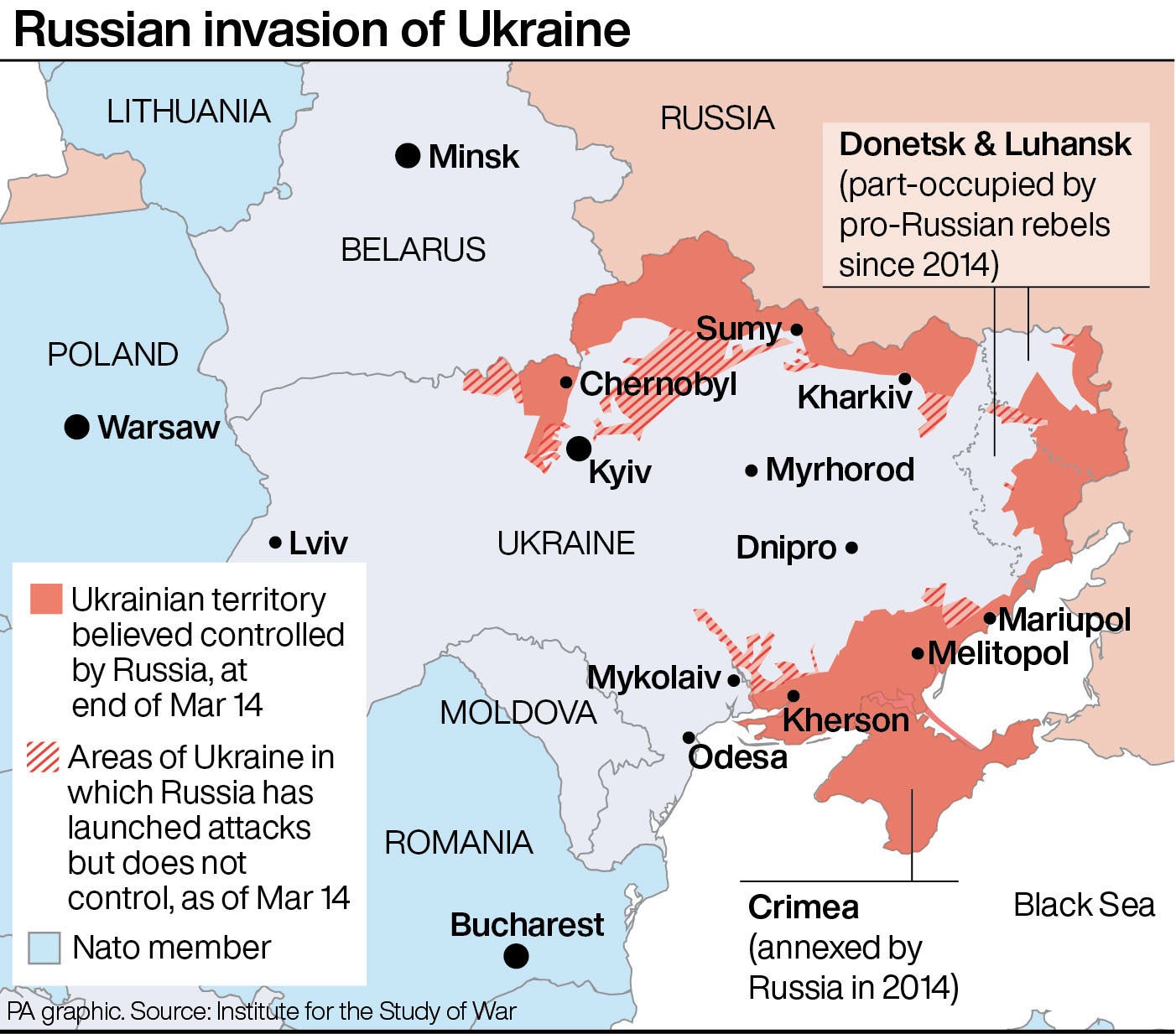
Russia may be planning to stage a referendum in Ukraine’s southern Kherson region to “legitimise” its apparent seizure of the territory, the UK believes.
Any vote would have echoes of the 2014 referendums in the “breakaway republics” of Donetsk and Luhansk, in the east if Ukraine, which were declared unconstitutional by the West.
A referendum was also held amid the annexation of Crimea, in the same year, which saw Russia claim a 97 per cent vote for integration of the region into the Russian Federation, on an 89 per cent turnout.
The Ministry of Defence has revealed the possible vote in the south, after Russia’s defence ministry spokesperson, Igor Konashenkov, said it had taken full control there.
“Reporting suggests that Russia may seek to stage a ‘referendum’ in Kherson in an attempt to legitimise the area as a ‘breakaway republic’ similar to Donetsk, Luhansk and Crimea,” it said.
In an intelligence update, it also said the Kremlin has reportedly installed its own mayor in the city of Melitpol, following the alleged abduction of his predecessor on Friday.
The update said it was reported that Russian forces have also fired warning shots at protestors as demonstrations broke out in occupied areas of Ukraine.
A Foreign Office minister said any referendum would “be another attempt to put a veneer of credibility on what is an unacceptable, unjustified illegal invasion”.
“What we have seen is that there has been a long-standing disinformation campaign coming out from Russia. There has been all kinds of excuses,” James Cleverly said.
The minister also argued the increasing brutality of Russia’s assault on Ukraine showed that Putin’s “plan of attack is not working”.
“It was meant to be some kind of lightning war where Russian troops swept across Ukraine.” Mr Cleverly told BBC Breakfast.
“But what we’re seeing is the defence by the Ukrainian people has been ferocious. This, of course, is incredibly frustrating to Vladimir Putin and we’re now seeing an escalation, the targeting of civilians and civilian infrastructure – which of course is illegal in international humanitarian law and the law of armed conflict.

“Sadly, this is, I think, a by-product of his anger, his frustration at the ineffective attack that he has put into Ukraine.
“And obviously, we continue to support the Ukrainian people through humanitarian aid, economic aid and also that defensive military equipment that we’ve been providing.”







